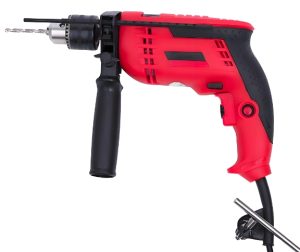Our Location
304 North Cardinal St.
Dorchester Center, MA 02124

Cordless drills are essential tools for both DIY enthusiasts and professionals due to their portability, versatility, and ease of use. Below are some common and highly-regarded models, categorized by their respective manufacturers.
DEWALT DCD771C2 20V MAX:
One of the most popular models, this drill offers a balance of power, durability, and price. It features a high-performance motor that delivers 300 unit watts out (UWO) of power, which is enough for a wide range of applications. The ergonomic handle provides comfort and control, while the 2-speed transmission offers flexibility for both high-speed drilling and high-torque tasks.
DEWALT DCD791D2 20V MAX XR:
A step up from the DCD771C2, the DCD791D2 offers a brushless motor, which increases the tool’s efficiency and runtime. It also has an impressive torque rating of 460 UWO and features a compact and lightweight design for easier handling in tight spaces.
Milwaukee 2801-20 M18:
Part of the M18 series, this drill is known for its robust build and superior performance. It boasts a 500 in-lbs of torque and up to 1,800 RPM, making it suitable for demanding tasks. Its REDLINK™ Intelligence ensures optimal performance and prevents overloading.
Milwaukee 2504-20 M12 FUEL:
For those looking for a more compact option, the M12 FUEL series offers excellent performance in a smaller package. This model features a brushless motor, delivering 350 in-lbs of torque and 1,700 RPM. Its compact size makes it ideal for tight spaces and overhead tasks.
Bosch PS31-2A 12V Max:
This is a lightweight and compact drill, perfect for smaller projects and delicate tasks. Despite its size, it delivers 265 in-lbs of torque and up to 1,300 RPM. It’s designed with an ergonomic grip and a lightweight body, making it comfortable for extended use.
Bosch DDB181-02 18V:
A more powerful option, the DDB181-02 offers 350 in-lbs of torque and a 2-speed transmission (0-400 RPM and 0-1,300 RPM). It’s compact and lightweight, making it suitable for both professional and DIY applications.

Makita XFD131 18V LXT:
This drill features a brushless motor that delivers 440 in-lbs of torque. It offers a variable 2-speed transmission (0-500 RPM and 0-1,900 RPM) for a wide range of drilling and driving applications. The ergonomic design and rubberized soft grip provide comfort and reduce fatigue.
Makita FD07R1 12V max CXT:
A compact and lightweight drill, ideal for tight spaces and overhead tasks. It delivers 280 in-lbs of torque and features a variable 2-speed design (0-450 RPM and 0-1,700 RPM). The drill is designed with an ergonomic grip and is part of Makita’s expanding 12V max CXT series.
Black+Decker LDX120C 20V MAX:
A budget-friendly option, this model is ideal for light to medium-duty tasks. It offers 115 in-lbs of torque and a 650 RPM speed. Its compact and lightweight design makes it easy to handle, and it’s perfect for home use.
Black+Decker BDCDD12C 12V Max:
A smaller, more compact option for basic household tasks. It features 100 in-lbs of torque and up to 550 RPM. Its lightweight design and ergonomic handle make it comfortable to use for extended periods.
When choosing a cordless drill, consider the following features to ensure it meets your needs:
1. Power and Torque: Higher voltage and torque ratings generally mean the drill can handle tougher tasks. Common voltages range from 12V for light-duty work to 20V and higher for heavy-duty applications.
2. Speed and Transmission: Look for models with variable speed settings and multiple transmission options. This flexibility allows you to adjust the speed and torque according to the task at hand.
3. Battery Life and Charging: Lithium-ion batteries are standard for cordless drills due to their longevity and quick charging times. Consider the battery capacity (measured in amp-hours, or Ah) and the availability of spare batteries.
4. Ergonomics and Weight: A lightweight, well-balanced drill with an ergonomic handle reduces fatigue during prolonged use. Compact models are particularly useful for working in tight spaces.
5. Chuck Size and Type: The chuck size determines the maximum bit diameter the drill can handle. Common sizes are 3/8 inch and 1/2 inch. Keyless chucks allow for quick and easy bit changes.
6. Additional Features: Look for additional features like built-in LED lights for visibility in dark spaces, belt clips for easy access, and brushless motors for increased efficiency and durability.
Choosing the right cordless drill involves balancing power, battery life, ergonomics, and additional features to suit your specific needs. Whether you’re a professional tradesperson or a DIY enthusiast, there’s a cordless drill on the market that’s right for you. The models listed above are some of the most popular and reliable options available, each offering unique features and capabilities. By understanding what each model offers, you can make an informed decision and select a drill that will serve you well for years to come.